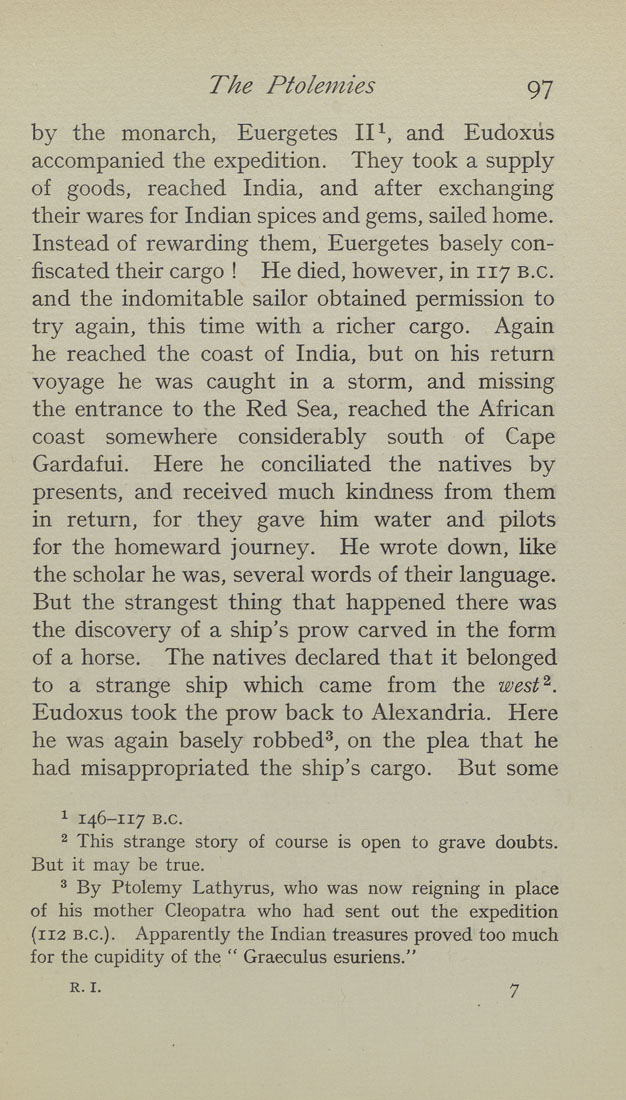The Ptolemies 97
by the monarch, Euergetes IP, and Eudoxus
accompanied the expedition. They took a supply
of goods, reached India, and after exchanging
their wares for Indian spices and gems, sailed home.
Instead of rewarding them, Euergetes basely con¬
fiscated their cargo ! He died, however, in 117 B.C.
and the indomitable sailor obtained permission to
try again, this time with a richer cargo. Again
he reached the coast of India, but on his return
voyage he was caught in a storm, and missing
the entrance to the Red Sea, reached the African
coast somewhere considerably south of Cape
Gardafui. Here he conciliated the natives by
presents, and received much kindness from them
in return, for they gave him water and pilots
for the homeward journey. He wrote down, like
the scholar he was, several words of their language.
But the strangest thing that happened there was
the discovery of a ship's prow carved in the form
of a horse. The natives declared that it belonged
to a strange ship which came from the west^.
Eudoxus took the prow back to Alexandria. Here
he was again basely robbed^, on the plea that he
had misappropriated the ship's cargo. But some
1 I46-II7 B.C.
2 This strange story of course is open to grave doubts.
But it may be true.
^ By Ptolemy Lathyrus, who was now reigning in place
of his mother Cleopatra who had sent out the expedition
(112 B.C.). Apparently the Indian treasures proved too much
for the cupidity of the " Graeculus esuriens."
R. I. 7
|








